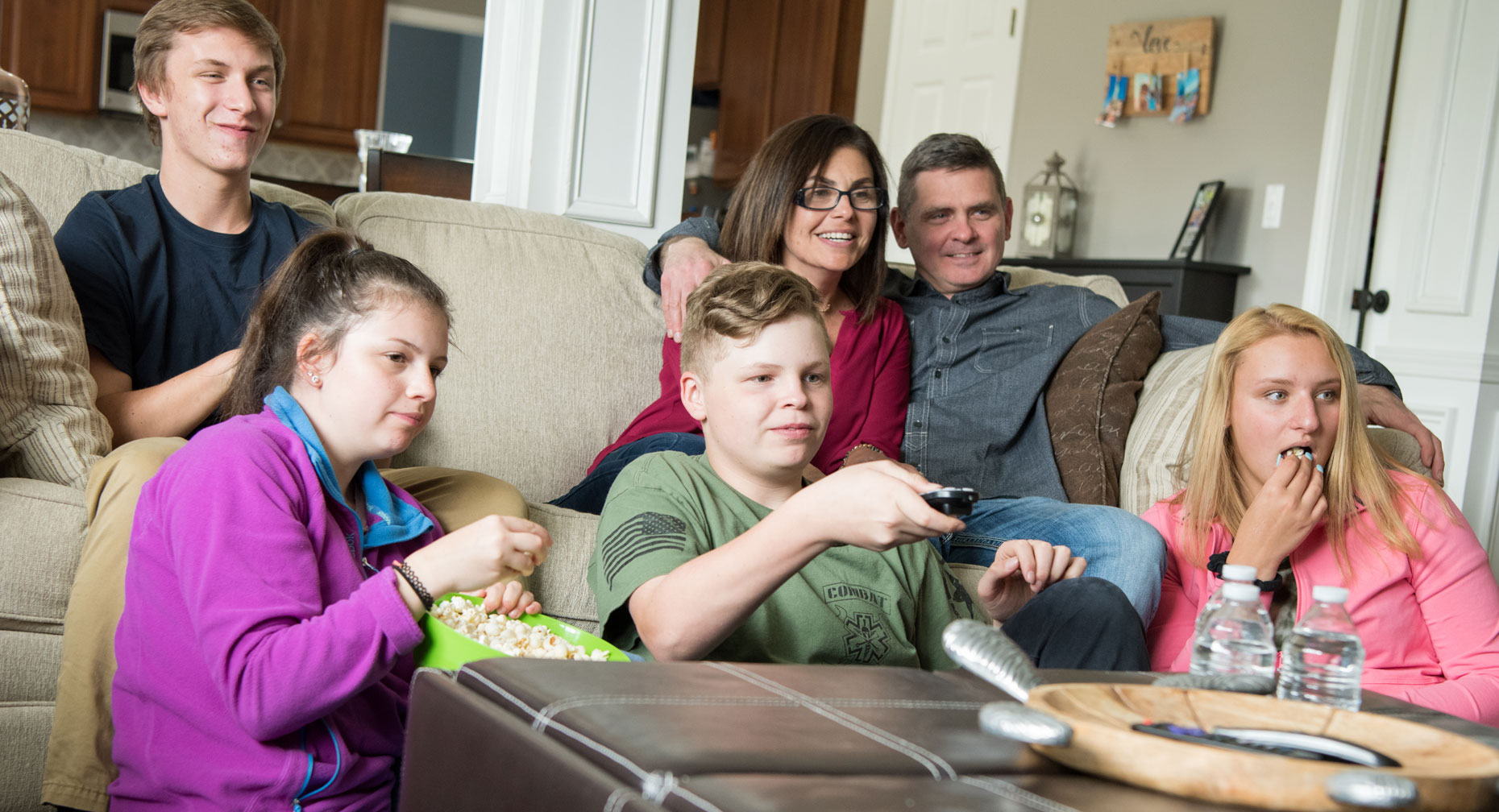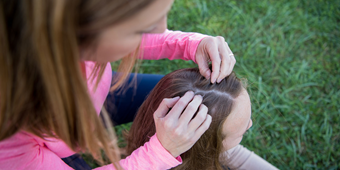When Love Turns Ugly: Unhealthy Teen Relationships

Find Your Perfect Match
Answer a few questions and we'll provide you with a list of primary care providers that best fit your needs.
Just the thought of your teen going on a date is nerve-wracking. And of all the things you have to worry about – parties, drinking, sex – there’s one more we need to look out for: dangerous relationships.
As much as we’d like to lock our teens away for, oh, say, a decade or three, dating is important to their healthy social development. “They’re learning how to have, and manage, adult relationships,” explains Beth Collins, MS, LPCC-S, a counselor with Samaritan Behavioral Health. “They’re discovering what they like and don’t like in a relationship. Over time, their relationships will get closer to what they ‘like’ and further from what they don’t ‘like.’”
But sometimes, those relationships can become more than an inexperienced adolescent can manage. Nationwide, nearly one in 10 high school students has been hit, slapped or physically hurt on purpose by their boyfriend or girlfriend in the past 12 months, according to the Centers for Disease Control. Another study found that approximately 1 in 3 adolescent girls in the U.S. is a victim of physical, emotional or verbal abuse from a dating partner.
So how do you know when it’s time to be concerned about your teen and dating? It helps to know the difference between healthy and unhealthy relationships, and recognize when things are headed down a dangerous path.
What Does a Healthy Relationship Look Like?
If a relationship is healthy, Collins says, it should include these characteristics:
- The couple should be no more than two years apart in age, or no more than one grade level up or down from each other. “You want them on the same developmental level,” Collins explains.
- The relationship should be out in the open. “This means the families of both kids are meeting each other,” Collins says. “The girl is meeting the guy’s parents, and the guy is meeting the girl’s parents. And, they’re still hanging out with their old friends, and spending time with each other’s friends.”
When a young couple dates openly, friends and family “are going to see the relationship more clearly” than the young couple will, Collins says. “Being ‘in love’ is addictive, and we’re not seeing straight,” she explains. “We’re only seeing the good things, and not the bad. It’s important to listen to the voices of others who are witnessing the relationship.”
- The couple’s core values should be similar, or at least compatible. “For example, if I value spending time with family, and he values independence and not telling others what he’s doing, that’s going to be a problem,” says Collins.
What Are the Warning Signs of Unhealthy Relationships?

Collins warns that it’s time to be concerned when:
- You see big changes in your teen. Her grades are down, she’s dropping out of activities that she once enjoyed, and her partner is forcing her to isolate herself from family and friends. That last one, in particular, “is a big red flag,” Collins says. “That usually is the first thing to happen in an abusive relationship.”
- Her partner constantly monitors her whereabouts and is unreasonably jealous. “He always wants to know where she is, and throws tantrums about it,” says Collins. “He’s always asking, ‘Where were you last night?’ ‘Why didn’t you answer the phone?’ That’s controlling.”
- He makes all of the decisions for the couple. He is completely domineering, and/or she is not willing to speak up for herself.
- The relationship escalates rapidly. Suddenly, they’re spending all their time together, away from friends and family, and/or it becomes physical quickly. If she tries to slow things down, he says he “can’t live without her” and threatens to do something drastic if she tries to change or slow down the relationship.
- He doesn’t respect her beliefs, values and boundaries. He encourages her to break rules, or makes fun of her opinions and interests. Or, he pushes her to engage in sexual activity that she doesn’t want or isn’t ready for.
What If Things Turn Violent?
According to the National Resource Center for Domestic Violence, dating violence can fall into one of the following categories:
- Physical: Pinching, hitting, shoving, slapping, punching or kicking.
- Psychological/emotional: Threatening, stalking, name calling, shaming, bullying, embarrassing on purpose, or keeping him/her away from friends and family.
- Sexual: Forcing a partner to engage in a sex act when he or she does not or cannot consent.
Violence in a relationship is a crime, Collins says, and should be reported to the police. Also, “be sure to talk to the school about limiting contact” with the former partner, she says, and talk to the police about a restraining order.
“They’re discovering what they like and don’t like in a relationship. Over time, their relationships will get closer to what they ‘like’ and further from what they don’t ‘like.’”
Laying the Groundwork
Parents play a critical role in preventing and responding to unhealthy dating relationships, and Collins says you can lay the groundwork for this before your child even hits adolescence.
- When your child is younger, encourage friendships with children and families whom you trust and who have similar values to yours. Once she becomes a teen, she is more likely to associate with and date peers from this group of friends. “Early on, you can have an influence on the ‘pool’ (of potential dates),” says Collins. These friends can also be a sounding board for her later on, during her teen years, when she may not be talking to you.
- Encourage your child’s interest in sports and hobbies. This helps ensure that “sweet-talking from a boyfriend or girlfriend is not their only source of self-esteem,” says Collins. Also, if this person threatens to leave the relationship, your teen will be able to fall back on those things that give her satisfaction and strength.
- Maintain an open and positive relationship with your child. She needs to know that she can ask questions, and not get “yelled at” if she opens up to you, Collins says.
As your child enters adolescence, establish parameters for your family life and your child’s social life. For example:
- Make sure she knows she’s expected to still be part of regular family activities, like family game night. Or if your family sits down regularly for dinner several times a week, make sure she knows she still needs to be part of that.
- Establish expectations regarding the age of the person she dates and how often she can go out (on dates or with friends).
- Encourage her to stay involved in extracurricular activities.
- Make clear, in advance of dating, what your rules and boundaries are, according to your family’s values. This can include anything from cigarettes, drugs and grades, to sexual and physical violence.
Be Prepared
Let your teen know that your door is always open to talk, without judgement, but don’t be offended if she refuses the offer. Still, tell her that you care and that you want her to be safe.
Finally, offer her this advice:
- Always tell someone about the evening's plans.
- Consider double dating when possible.
- Have a plan for what to do if a date becomes abusive.
- Avoid drinking and taking drugs, which can put you at greater risk for abuse.
- Know and carry emergency contact information.
- Trust your instincts.
Find Your Perfect Match
Answer a few questions and we'll provide you with a list of primary care providers that best fit your needs.
Source: Centers for Disease Control; Youth.gov; Domesticshelters.org; National Resource Center on Domestic Violence; Beth Collins, MS, LPCC-S, Samaritan Behavioral Health





